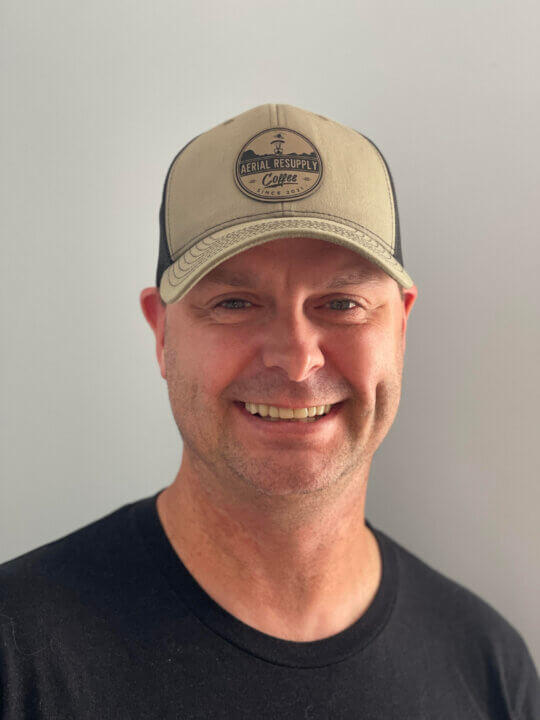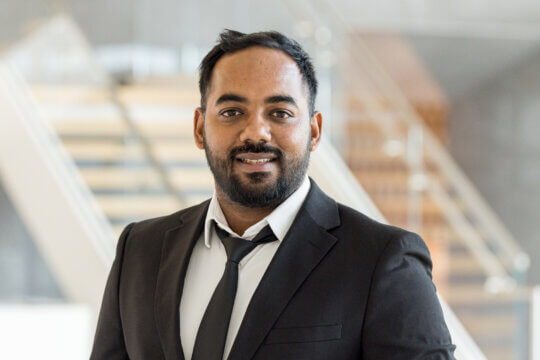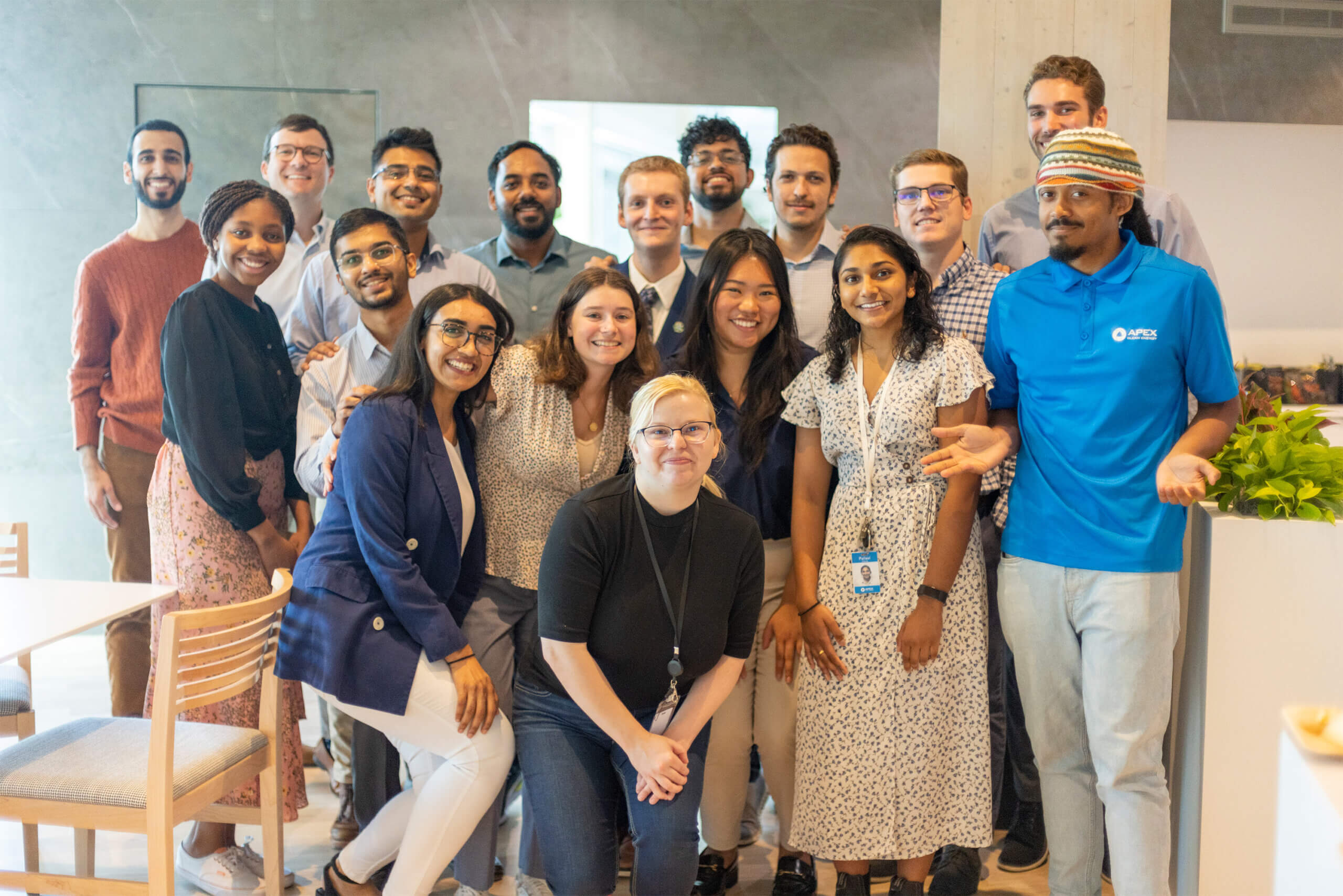From Learning to Leading
How Apex’s Former Summer Associates Are Shaping the Future Workforce
There is no better time than now to join the shift to clean energy. Between the spiking costs of fossil fuels, advancement in renewable technologies, and the global acceleration of installed wind and solar capacity, the renewable energy transition is here—and here to stay. The industry’s rapid growth is driven by a passionate workforce of individuals committed to a decarbonized future. To further propel that momentum and reach the United States’ ambitious goal of net–zero emissions by 2050, the industry needs to invest in its future leaders.
Since 2011, Apex has run a successful internship program to educate and support talented individuals as they explore working in renewable energy. These summer associates bring a range of skills, passions, and backgrounds that have a tangible impact on Apex’s work and culture—and they’ve gone on to achieve considerable success along various career paths. Some summer associates have joined other titans in the clean energy industry; others have started their own companies; still others have returned as full-time Apex employees. Dariah Norwood, Mike Klemmer, and Roshan Barnwal exemplify the many rewarding paths that can emerge from Apex’s summer associate program. Read on for their stories.
Dariah Norwood: A Passion for Policy
Norwood interned with Apex for two summers before working with the company’s State Affairs department for nine months. She holds an MS in global affairs with a concentration in energy and environmental policy from New York University, where she wrote her thesis on different energy networks and communities in African countries. Norwood now works as a policy lead in regulatory strategy and policy at National Grid—one of the largest utilities focused on the transmission and distribution of electricity—where she brings a global lens and passion for environmental justice, energy equity, and energy access.

“My very first internship was in federal government affairs for another energy company in Washington, DC. While I was there, I fell in love with energy policy and regulation. I saw a lot of black
women who worked in the industry and looked like me—hearing them speak up about the transformation of the energy industry and its impact on people’s lives inspired me to work in it.
Throughout my internships in State and Federal Affairs at Apex, everybody I met was so nice—every single person. I felt like my voice was valued and that I could really succeed in the space. Working at Apex made me realize, ‘This is the industry for me, and I want to be a leader in it.’ I want to be a powerful player in the global energy industry, creating legal and business solutions that advance energy, climate, and sustainability efforts worldwide.
Throughout my internships and studies, I looked at environmental justice and how renewable energy can help us shape energy policy at large. I come from a different understanding of how to get to a clean grid because I studied energy policy internationally. Many people in African and Asian countries don’t have access to any kind of energy, whether it’s renewable energy or even quality gas and light.
Energy is a global issue. It affects education, health care, food, agriculture—everything. We won’t be able to move the needle on anything unless we are honest about the inequities behind the energy transition.
My work in policy is important to me because I get to fight for that environmental justice and racial equity. The global oil and gas industry—along with the utility and renewable energy industry—has had so few women in leadership positions, despite the achievements that women, including women of color, have made and continue to make. I want to bring up other women who look like me and let them know that a STEM career doesn’t just have to focus on science or math. You can just be passionate about wanting to change people’s lives. Whatever sector I go into—whether that’s policy, legal, regulatory compliance—I want to be an agent of change.”
Mike Klemmer: From Logistics to Entrepreneurship
Before his internship at Apex, Klemmer had a long, successful career in the U.S. Army as a logistics officer. Through the Department of Defense’s Skillbridge fellowship, he joined Apex’s internship program, during which he focused on analyzing critical logistics project paths for over 30 wind and solar energy projects. He also drafted recommendations for increased management and coordination efficiencies, developed risk models for wind energy projects, and conducted supply chain forecasting. Klemmer now owns and operates Aerial Resupply Coffee, which provides premium coffee to veterans and the communities they serve.

“After serving 20 years in the army, you have the option to either retire or make the army a career. You can serve for 30 to 40 years, but after doing my 20 years, it was time for me to try my hand at something else.
I got involved in the Apex internship through a different method from most interns. I was part of the SkillBridge program, which helps veterans transition into the workforce with partnered companies. I reached out to Apex’s chief operating officer, another Army veteran, who helped bring me in as SkillBridge partner for a four-month fellowship.
Coming from a heavy supply chain world to wind and solar energy, I used my skills on the GIS side of technology. In the army, logistics is more than the transportation from point A to point B. It’s about making sure that whoever’s on the other end has everything they need at the right place at the right time. When I came to Apex, I wanted to get a better understanding of the renewable energy space—while also applying my knowledge of managing a lot of different moving pieces so that everything converges properly. I worked through questions like, ‘How do turbines get from point A to point B? Is the transportation method being utilized correctly? Are there better ways to get things done?’
Apex taught me how the corporate world functions. I can speak to military operations all day long, but I didn’t know how a privately held company or a corporation could do what they do, or the methods and languages involved. Apex was the first company that introduced me to all that.
After working at Apex, I made another jump and opened my own coffee shop, Aerial Resupply Coffee. I felt inspired to transition to the coffee industry because I saw a need in the marketplace—specifically on the veteran side—for a company that is built on a foundation of supporting others. Coffee spoke to me because as I was transitioning out of the army, many of the people who I met would say, ‘Let’s go have a cup of coffee and talk.’ And I realized that coffee is an interconnecting binder for relationships. Veterans can experience isolation sometimes, so I wanted to bring back a feeling of connection in the way that I can. There are mental health issues within the veteran community that I think need to be addressed a little better. Those are the things that I’m focusing on—above and beyond coffee.”
Roshan Barnwal: A Power Enthusiast Traverses Borders
Barnwal spent three years coordinating and supervising solar farm projects for Surya Power Company in Nepal. He then moved to the United States, where he received his MS in electrical and electronics engineering at Texas Tech and worked as a project management engineering summer associate with Apex. In January 2023, Barnwal joined Apex full-time as an electrical engineer.

“Before moving to the U.S., I worked as an electrical engineer for Surya Power Company based in Nepal, where the way of doing work is incredibly different than in the United States. Ultimately, we see electricity at both ends—that’s the only commonality.
In Nepal, we didn’t have a safety manager—we just had one or two people who were first-aid trained, and we didn’t have an emergency plan. But at Apex, everyone is so focused on safety, and I am happy to see it. The projects I worked on in Nepal are one-tenth or -twentieth of the size of the projects I’m working on now. In Nepal, we had a core engineering team of six or seven people, and we did everything ourselves. We designed projects to be built right in front of mountains, and I once walked for six days to construct a 20 kW solar farm on top of a field. People were seeing electricity for the first time in their lives. At Apex, we have separate teams for everything; we have specialized experts who look at project development, permitting, and land.
Apex’s summer associate program—my first experience in U.S. renewable energy—was so valuable because we really got to know the industry and Apex as a company.
We had weekly leadership meetings with different departments, and those introduced me to so many aspects of the business that I would have never known about otherwise. I learned about development, permitting, land leasing, operations, transmission. Although it was clear to me that I wanted to work on the technical side of the industry, those introductions were helpful for those who were not sure where they wanted to go in the future. Talking to the department heads gave everyone a sense of direction. I wanted to join Apex full-time because everyone here was collaborative and supportive during my internship.
Right now, I work on designs and studies for projects, and it is great to see those designs physically transform into a construction site. And thanks to Apex’s support of continuing education, I recently received my project management professional (PMP) certification, which is exciting because I have always enjoyed being on the management side of work too. In general, it is a good time to invest in my career because the renewable energy market is booming. Everyone needs electricity—we needed it in the past, and we need it in the future. And this transition to renewable energy is critical for the next generation.”


